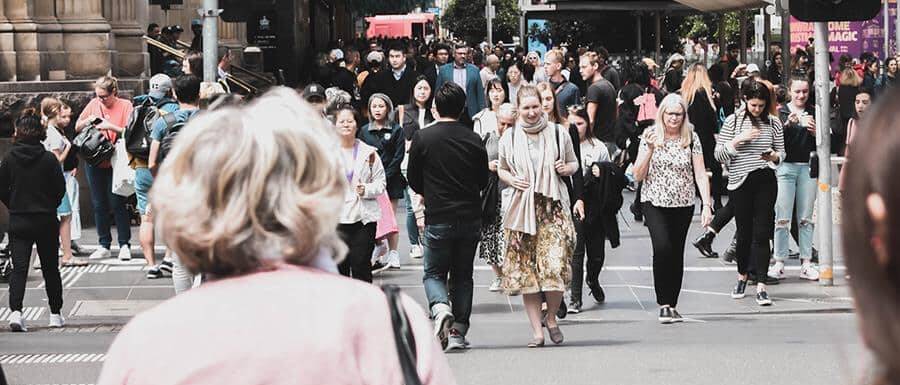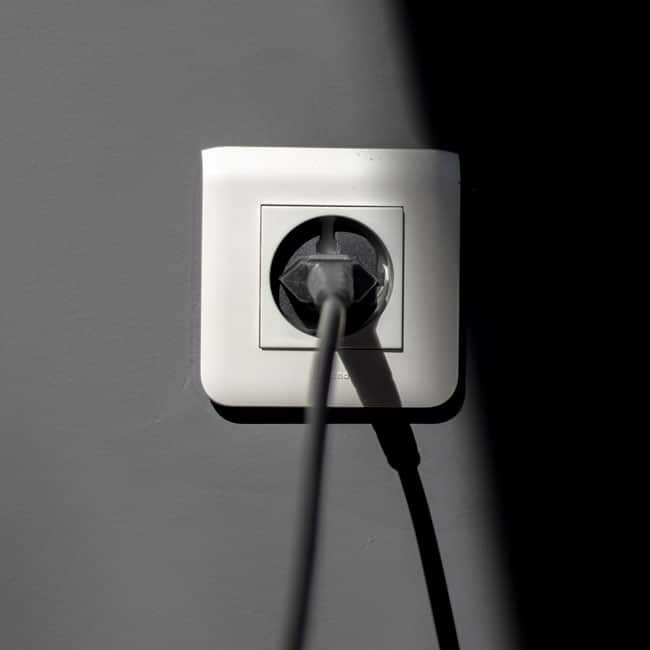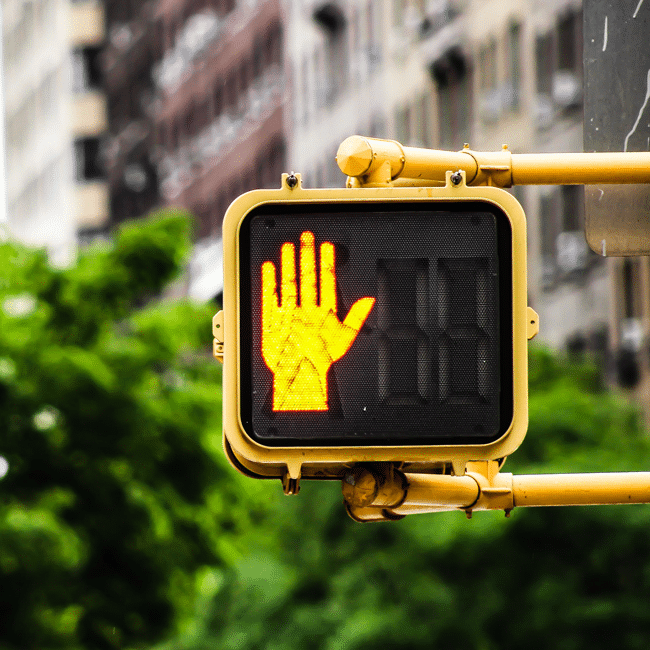Georg Kell on climate and misinformation

Georg Kell on climate and misinformation
Opinion + AnalysisBusiness + Leadership
BY The Ethics Centre 27 SEP 2021
Founder and former Executive Director of the United Nations Global Compact, Georg Kell, sat down with The Ethics Centre’s Simon Longstaff to chat about the future of business sustainability for our ‘Leading with purpose’ series.
Georg Kell reflects on his first interactions with the United Nations Global Impact initiative fondly. “It was the late 90s when globalisation was very much on everyone’s lips and the world was embracing openness and the liberal order,” he says.
The idea behind the UN Global Compact originated in a speech by then Secretary-General Kofi Annan to the World Economic Forum in the late 1990s. At the time, the UN was already a well-known force in human rights, labour rights, environmental protection and ethics, good governance and anti-corruption, but these core pillars were seldom applied to large corporations.
The speech was called ‘The Global Compact’ and called on business leaders, in an era of globalisation, to take on more responsibility not just to look for profit but also to build environmental, social, and governance pillars. Popular reaction to the speech led to the official creation of the United Nations Global Compact in 2000, and Georg Kell was named the founding Executive Director.
In his capacity as the Executive Director, Georg Kell was involved in the creation of the Sustainable Development Goals, a blueprint to achieve a better and more sustainable future for all. Kell convened 60 international meetings with the corporate community to flesh out their desired goals and settled on a list of 12, which has now been increased to 17. The goals address the global challenges humanity faces including: climate change, poverty, inequality, environmental degradation, peace and justice.
The 17 sustainable development goals:
- End poverty in all its forms everywhere
- End hunger, achieve food security and improved nutrition
- Ensure healthy lives and promote wellbeing for all ages
- Ensure inclusive and equitable quality education for all
- Achieve gender equality and empower all women and girls
- Ensure availability and sustainable management of water and sanitation for all
- Ensure access to affordable, reliable, sustainable and modern energy for all
- Promote sustained, inclusive and sustainable economic growth
- Build resilient infrastructure
- Reduce inequality within and among countries
- Make cities and human settlements inclusive, safe and resilient
- Ensure sustainable consumption and production patterns
- Take urgent action to combat climate change and its impacts
- Conserve and sustainably use the oceans
- Protect, restore and promote sustainable use of terrestrial ecosystems
- Promote peaceful and inclusive societies for sustainable development
- Strengthen the means of implementation and revitalise the Global Partnership for Sustainable Development.
Kell admits it was a difficult task to convince business leaders representing different countries and backgrounds to sign onto the same goals, but says, regardless of culture and history, most people have similar interests. “No mother wants her daughter to go into forced prostitution. No father wants his son to be shot on a useless battlefield. Humanity has common aspirations. I think it is very important that we uphold those ideas that we stand by and do not give in.”
“For me the Global Compact principles are normative in nature. They are behavioural. They are a minimum floor, on which one should build, one should never go beneath it. It should never violate principles. You should not be corrupt. You should not employ child labour. You should not discriminate. We should not be complicit in human rights abuses.”
AUDIO: Listen to Georg Kell chat about the conception of the Sustainable Development Goals.
Georg Kell is optimistic about the climate.
“The world is moving very fast. And I do believe you’re standing now at the crossroad of a new tone. I take heed for example from the fact that both China and the new US administration and the European Union and Japan, and a number of other countries, now have a long term vision about climate change. Through the common threat posed we now have an opportunity to find a solution. I do believe we can and will discover a lot of commonality and common interest. So, there’s a new chance for a new beginning. I see many positive ripple effects including rediscovering the power of collaboration.“
Georg Kell is less optimistic about the dissemination of information.
“Nothing is assured in terms of rediscovering trust through truthful and honest information. That remains a big ongoing challenge and we all were a bit disappointed with the internet freedom. It didn’t necessarily advance, just the right courses, as we would perceive it, but it also enabled all sorts of conspiracies and niche thinking. But I do believe that events then rectify such mistakes, so to speak, when they come off the path. So it’s an opportunity for a renewal of basic belief systems. We have a chance to reload again. And unfortunately, we have to rediscover and relearn all the time. Unfortunately, that’s probably the destiny of our life. I do believe we have a constant duty to rediscover and relearn. And that will never go away.”
“Every citizen. Every organisation has a fundamental role to play in social development in society, and business with its significant influence and power has an appropriate important responsibility to play.”
Georg Kell hopes businesses take the opportunity to learn before crises occur.
Georg Kell says that in all his experience working in many different corporations he has actually come to appreciate a crisis situation, because he appreciates when a corporation is willing to rethink their position. However, he wishes that willingness also existed in the absence of a crisis. “Often when corporations learn from a crisis they emerge even stronger,” Kell says. “It’s easy to measure the costs of doing things wrong – reputational damage, stock prices go down – but it’s far more difficult to convince people of the benefits of getting a choice.”
According to Kell, businesses should take the time to reflect and question the purpose of what they’re doing and where they’re headed on a regular basis, without waiting for a crisis to occur.
AUDIO: Listen to Georg Kell talk about crisis management.
Georg’s advice for future business leaders:
- Pause, step back, reflect.
- Find a long-term view that you feel inwardly comfortable with.
- Make sure you have all the competencies and then go for it with full dedication.
AUDIO: Listen to the full podcast here.
Georg Kell is the founder and former Executive Director of the United Nations Global Compact. He is also the Chairman of Arabesque Partners, a technology company that uses AI and big data to assess sustainability performance relevant for investment analysis and decision making.
This episode was made possible with the support of the Australian Graduate School of Management, in the School of Business, at the University of New South Wales. Find out more about other conversations in the Leading with Purpose podcast.
Get more articles and podcasts like this by signing up to our Professional Ethics Quarterly newsletter here.
Ethics in your inbox.
Get the latest inspiration, intelligence, events & more.
By signing up you agree to our privacy policy
You might be interested in…
Opinion + Analysis
Business + Leadership, Politics + Human Rights
Can philosophy help us when it comes to defining tax fairness?
Opinion + Analysis
Health + Wellbeing, Business + Leadership
The ethical dilemma of the 4-day work week
Opinion + Analysis
Business + Leadership, Relationships
The twin foundations of leadership
Opinion + Analysis
Business + Leadership, Climate + Environment, Relationships
ESG is not just about ticking boxes, it’s about earning the public’s trust
BY The Ethics Centre
The Ethics Centre is a not-for-profit organisation developing innovative programs, services and experiences, designed to bring ethics to the centre of professional and personal life.
360° reviews days are numbered

360° reviews days are numbered
Opinion + AnalysisBusiness + Leadership
BY The Ethics Centre 21 SEP 2021
360 reviews, ‘culture pulses’ and staff surveys are the go-to tools for leadership evaluation and understanding company culture, but ‘shadow values and principles’ stop them from revealing the full picture. Here are three steps to identify and address shadow values to better understand you company’s culture.
Strong culture is integral to the smooth functioning of companies, but most organisations are only getting half the picture, says John Neil, Director of Innovation and member of the Consulting and Leadership team at The Ethics Centre.
360-degree reviews and staff engagement surveys provide a glimpse of company culture, but what they don’t reveal are the deeper, endemic aspects of culture that are ingrained and influential – the ‘shadow values and principles’.
Shadow values and principles are often invisible when culture is seen only through the lens of traditional staff surveys and reviews. However, all companies have their version of them and they need to be brought to light, acknowledged and addressed to truly gauge what’s in play in the culture. In doing so, Neil says “we can significantly improve outcomes both for individuals and for organisations.”
Below are three steps to identifying and addressing shadow values and principles.
1. Identify what shadow values are
“There are really two fundamental aspects to an organisation’s culture,” Neil says. “There are ‘above the line’ elements: the visible, the identifiable, the self-evident. And then there are ‘below the line’ elements, which are less visible, more implicit, and not so easy to identify. The latter are shadow values and principles.”
In other words, they are the unspoken rules, attitudes and behaviours of a company’s culture that aren’t immediately apparent but influence every aspect of the business.
While they can be positive, neutral or negative, “being aware of them is a really key part of better understanding what drives individual employees and the organisation’s culture as a whole,” Neil says.
2. Understand how they operate
Shadow values and principles can operate in numerous ways. One organisation, which commissioned The Ethics Centre to review its culture, had the positive shadow principle of “putting members first”.
“If staff had no clear information or instructions about how to respond to a situation, they would apply this principle and act in the member’s best interest,” Neil says.
“‘Putting members first’ was not codified as one of the organisation’s corporate principles, but it was widely held throughout the organisation. It’s an incredibly powerful and positive shadow principle.”
Another organisation was challenged with becoming more agile but was hampered by the shadow value of ‘harmony.’ Again, while not being formally one of the organisation’s official values, it had a central place in driving behaviours, some of which were positive, but others were detrimental.
“Being harmonious and keeping the peace was something that everyone held to, and while it could be positive, it had negative dimensions as well,” Neil says. “People tended to over-consult, often to keep the peace as there tended to be a culture of avoiding conflict.”
“The decision-making model was a consensus based one and tended to include everyone. As a result, people would defer accountability for making decisions, and therefore decision making was unwieldy and bureaucratic. The shadow value was a major impediment to building a culture in which people expressed their actual views.”
Critically, the organisation’s strategy involved increasing its agility, responsiveness and a focus on innovation – cultural traits that needed to be consciously developed. However, the shadow value of harmony and its negative effect of conflict avoidance meant innovation and agility was more difficult to achieve.
3. Learn how to name and address shadow values
So how can organisations bring their shadow values into the light and begin to remedy the negatives?
“We need to recognise the limitations of the existing approaches to understanding culture, such as staff engagement surveys,” Neil says. “Those methodologies are only as good as the psychological safety in an organisation and the employees’ belief that their contributions to those surveys are going to make a difference.”
This is where a review that focuses on shadow values and principles can identify the unstated operating culture and make recommendations to realign purpose and reaffirm strategic ambitions.
“There also remains a need to recognise the strategic significance of culture,” Neil says. “Culture is integral to the success of a company. It’s the backbone of delivering on an organisation’s strategy.
“There is still, I think, a general lack of recognition of how important culture is in achieving and delivering on strategy. Culture goes much deeper than ‘engagement’.”
Want to find out more about shadow values and principles? Head here.
Ethics in your inbox.
Get the latest inspiration, intelligence, events & more.
By signing up you agree to our privacy policy
You might be interested in…
Opinion + Analysis
Business + Leadership
Between frenzy and despair: navigating our new political era
Opinion + Analysis
Business + Leadership
Pulling the plug: an ethical decision for businesses as well as hospitals
Opinion + Analysis
Business + Leadership, Politics + Human Rights
We are on the cusp of a brilliant future, only if we choose to embrace it
Opinion + Analysis
Business + Leadership
Why do good people do bad things?
BY The Ethics Centre
The Ethics Centre is a not-for-profit organisation developing innovative programs, services and experiences, designed to bring ethics to the centre of professional and personal life.
Pavan Sukhdev on markets of the future

Pavan Sukhdev on markets of the future
Opinion + AnalysisBusiness + Leadership
BY The Ethics Centre 20 SEP 2021
Pavan Sukhdev is an environmental economist whose field of studies includes green economy and international finance. Pavan sat down with The Ethics Centre’s Dr Simon Longstaff to chat about the future of business sustainability.
Pavan Sukhdev is considered a true pioneer of sustainability. His business background champions the fusion of finance and economics with sustainability and responsible management. So how did a person interested in banking, finance and economics come to have a particular passion for the sustainability agenda?
Pavan says he owes it all to his upbringing. “I think the cultural upbringing of a child in India, in family, in networks which are community-heavy and community-oriented, never too far from nature – because India is a pretty wild place if you just care to step a few kilometres out from wherever you are – I think these things create a sense of understanding of a world that is not just an urban world, and not just a markets world.”
Pavan’s perspective on markets and value shifted drastically after taking up a job in Singapore with Deutsche Bank, when a conversation with a friend prompted him to realise that what people value – relationships, family, nature – doesn’t trade in markets. And yet our society is so mesmerised by the magic of markets that, if something doesn’t have a price, it doesn’t have value to us. He started doing research on environment economics and wrote a piece for the Economic Times in India, which helped him find a few kindred spirits at Deutsche Bank.
“I came to a point where I thought, someone needs to do something about this economic invisibility of nature.”
It was in this marriage of markets and the invaluable asset of the natural world that Pavan felt he had found his calling. He recounts a story about one evening when he was driving home from work, daydreaming about an idea for a green accounting project for Indian states. He drove past a roadside sign with a quote from Gandhi, which read: Find purpose; the means shall follow.
The message hit him “like an accident”, and Pavan called up some influential friends who, to his delight, were all very willing to help him set up his project. Four friends started working on the side-project and within a few years they had cracked it, he says. “We actually created the world’s first set of complete green accounts for the entire Indian Union of 28 states.”
While there were a number of his colleagues at Deutsche Bank at the time who quietly wondered what he was doing, Pavan is optimistic that in the years since perceptions and attitudes towards valuing the environment have changed, so much so that it has become the mainstream.
AUDIO: Listen to Pavan’s story about realising his environmental vision.
“I believe companies are not merely machines to make money for shareholders, they should have purpose. In fact, they should begin with purpose and then define their path to profitability. And these ideas would have been crazy 10, 15, 20 years ago, but they’re not anymore.”
Pavan on the corporations of the future.
“I see the corporation and its ability as similar to that of a species. A species evolves in response to its environment as the environment changes. The strong who are able to cope with that environment survive and the others die away and that creates evolution. And I see that corporations will move in that kind of direction. So the question is, what are we changing in the environment of the corporation in terms of policies, prices, and institutions that are going to create the new corporation?
AUDIO: Listen to Pavan’s ideas about how corporations need to evolve to survive.
Organisations to watch in the sustainability space:
- Capitals Coalition – a global collaboration redefining value to transform decision making.
- The Social and Human Capital Coalition – a global collaboration that brings together leading organisations to harmonise decision-making processes around social and human capital.
- The Impact Management Project – a forum for building global consensus on measuring, managing and reporting impacts on sustainability.
- The Value Balancing Alliance – enabling decision makers to act consciously.
Pavan on the markets of the future.
“Through focusing on the economic invisibility of nature and the fact that our decision-making as policy makers or business people – and these are the two largest, most powerful decision-making groups around the planet – tends to ignore what is economically invisible, has led me to understand that there’s a lot more that we ignore. We ignore human capital. So we will, for instance, account in the GDP for the cost of building and running universities, teacher salaries, and such like, but we will not account for what’s put in as a result of those teachers and those universities and the creation of human capital. And the ability to leverage [human capital] and generate future income and so on is massive.”
AUDIO: Listen to Pavan’s ideas on how to value human capital.
Pavan’s advice for leaders:
- Find purpose; the means shall follow.
- Our values become our destiny.
- Put effort into trying to discover what you’re on this earth for.
- Try to understand, appreciate and express your values, and try to accept them.
AUDIO: Listen to the full podcast discussion with Pavan.
Pavan Sukhdev is an environmental economist whose field of studies includes green economy and international finance. He was the Special Adviser and Head of UNEP’s Green Economy Initiative, a major UN project tasked with demonstrating that the greening of economies is not a burden on growth but rather a new engine for growing wealth, increasing decent employment, and reducing persistent poverty.
This episode was made possible with the support of the Australian Graduate School of Management, in the School of Business, at the University of New South Wales. Find out more about other conversations in the Leading with Purpose podcast.
Get more articles and podcasts like this by signing up to our Professional Ethics Quarterly newsletter here.
Ethics in your inbox.
Get the latest inspiration, intelligence, events & more.
By signing up you agree to our privacy policy
You might be interested in…
Explainer
Business + Leadership
Ethics Explainer: Ethical Infrastructure
Opinion + Analysis
Business + Leadership
Why you should care about where you keep your money
Reports
Business + Leadership
Ethics in the Boardroom
Opinion + Analysis
Business + Leadership
‘Hear no evil’ – how typical corporate communication leaves out the ethics
BY The Ethics Centre
The Ethics Centre is a not-for-profit organisation developing innovative programs, services and experiences, designed to bring ethics to the centre of professional and personal life.
David Gonski on corporate responsibility

David Gonski on corporate responsibility
Opinion + AnalysisBusiness + Leadership
BY The Ethics Centre 20 SEP 2021
David Gonski sat down with The Ethics Centre’s Dr Simon Longstaff to chat about the future of business sustainability.
David Gonski is so well known in Australia, his surname has become part of Australian vernacular. He’s been a lawyer, he’s headed up corporations and banks, he’s been the chairman of major companies, and he also serves as chancellor of the University of New South Wales.
After completing a law degree, Gonski got his start in the business world 43 years ago, long before climate, sustainability and corporate responsibility were on the agenda. “Profit was key”, he says, “We lauded people who made money and those who were not tough and didn’t exploit every loophole were regarded as not very good business people.” While his peers in the law profession were driven by ethics and justice, Gonski was disappointed to find that those in the business sector were characterised by their arrogance and capacity to exploit customers and resources for profit.
“I think we are humans and as managers we must never forget that we’re humans. And we have obligations to our society as humans which we bring to every part of the world in which we work.”
Nowadays, sustainable development goals are central to boardroom discussions. Business as a whole; from the very large to the very small, is being recognised as having a major impact in the world both in society and the natural environment, which in part is why people look to businesses increasingly to address concerns where governments have failed to do so.
“Today people don’t want to work for a company that’s not socially responsible. Today people often choose the container that is more biodegradable or whatever than the one that isn’t.”
Gonski on ethics.
In law there are very defined legal ethics, but when it comes to business it’s complicated. As an individual there are certain ethical things that you must do to lead a proper life, and for Gonski, the notion of asking the hard ethical questions has changed his life, and approach to boardroom decisions. Business ethics is about asking the questions: what should I do? What is good for the planet? What is good for the future – the long term versus the short term? He believes those who are successful in business are those who really think about things, rather than just learning things by rote or just accepting the status quo. Of course, sometimes you make the wrong decision but you must always be willing to ask the questions.
Gonski on responsibility.
Above all, business leaders have a responsibility to their community. Business should never be about just about making profits, or just employing good people, but rather consider what business is achieving for the long-term future of the country and our society. Responsibility should be a compulsion, because if we ignore it, it will in the end reduce the value of our business and deter us from being able to do what we want to do.
Gonski on sustainability.
Sustainability should be our longer term compulsion to look at what your short-term thinking is and how that can affect long-term growth. “I have lived through 40 plus years of people making short-term decisions. And let me tell you, they may not have themselves regretted because often they’ve made good bonuses from it, but in the long-term the business has.”
AUDIO: Listen to David Gonski chat about the three key pillars of management.
What keeps Gonski up at night?
“I do believe we should all be working together. And I am worried that our working together between corporations, government, and the community generally is not as perfect a circle as it needs to be. We need to hold hands rather than keep arguing with each other. It’s still a little too easy to make short-term decisions. And I’m often very comfortable that a decision in the short-term is right, but I wonder a lot in the wee hours of the morning ‘is it a long-term sustainable idea?’”
Is David Gonski optimistic about the future?
“I am extremely optimistic and I have a number of reasons to be. As chancellor of a university my optimism is always reinjected and reignited by meeting the students that we’ve got. We’ve got fabulous people, who are excited by concepts, who are thinking, who want to change things in their own way and do good things. That’s exciting. That’s wonderful.”
“ I think an absolutely guided and principled optimism is the way one should look at business.”
Gonski’s advice for future business leaders.
Despite having over four decades of business experience, David Gonski is still learning. Throughout the pandemic, one of his most important lessons was that canvassing broadly for advice is a strength not a weakness; that it’s vital to broaden your circle of advisors and take more advice from more people. One of the hardest things for CEOs is to admit they don’t know the answer to a question, but terrible things happen when they pretend to know the answers. Throughout his career, Gonski has watched many CEOs laud strength, which is manifested in people who can make fast decisions, in people who don’t prevaricate, but now he believes the real strength lies in an ability to put one’s thinking to one side and seek advice.
AUDIO: Listen to David Gonski chat about what he looks for in a CEO.
Five tips from David Gonski.
- Make sure you understand the history of the company.
- Learn about ethics.
- Be willing to admit you don’t know all the answers, and seek advice.
- Be open to ideas.
- Seek inspiration from your communities.
AUDIO: Listen to the full podcast discussion >>
David Gonski is former Chairman of ANZ and Coca-Cola Amatil, he is also Chancellor of the University of New South Wales, President of the Art Gallery of NSW Trust, and Chairman of the UNSW Foundation. He is a member of the ASIC External Advisory Panel and the board of the Lowy Institute for International Policy, a Patron of the Australian Indigenous Education Foundation and Raise Foundation and a Founding Panel Member of Adara Partners. In 2008, The Sydney Morning Herald described Gonski as “one of the country’s best-connected businessmen”.
This episode was made possible with the support of the Australian Graduate School of Management, in the School of Business, at the University of New South Wales. Find out more about other conversations in the Leading with Purpose podcast.
Get more articles and podcasts like this by signing up to our Professional Ethics Quarterly newsletter here.
Ethics in your inbox.
Get the latest inspiration, intelligence, events & more.
By signing up you agree to our privacy policy
You might be interested in…
Opinion + Analysis
Business + Leadership
Ask an ethicist: How to approach differing work ethics between generations?
Opinion + Analysis
Business + Leadership
Ethical redundancies continue to be missing from the Australian workforce
Opinion + Analysis
Business + Leadership, Science + Technology
Meet Aubrey Blanche: Shaping the future of responsible leadership
Opinion + Analysis
Business + Leadership
Measuring culture and radical transparency
BY The Ethics Centre
The Ethics Centre is a not-for-profit organisation developing innovative programs, services and experiences, designed to bring ethics to the centre of professional and personal life.
Violent porn denies women’s human rights

Violent porn denies women’s human rights
Opinion + AnalysisRelationships
BY Caitlin Roper The Ethics Centre 20 SEP 2021
In a piece published here earlier this month, ethics teacher Georgia Fagan argued that violent pornography was not incompatible with feminism – that it could even be a ‘feminist choice’ compatible with ‘gender equality’. Naturally those of us who have engaged in this field for many years did a double-take.
Fagan argues that feminist efforts to dismantle the pornography industry deny the rights of female performers to “use their naked bodies for profit”. She claims such content represents a “celebration” of “emancipated female sexuality”.
The notion that violent pornography can be ‘feminist’ is evidence of one of two assumptions; that filmed acts of male violence against women for men’s sexual gratification can be a feminist endeavour, or that the violence done to women in the production of pornography does not count as violence. As feminist legal scholar Catharine MacKinnon noted, pornography is a record of men’s violence against women. It is not fantasy, not speech, but acted out on the bodies of real women who are directly used to produce it – “what pornography does, it does in the real world”.
Mainstream pornography is the graphic, sexualised depiction of male dominance and female subordination. It eroticises men’s violence, aggression, cruelty, degradation and humiliation of women. It is hate speech, anti-woman propaganda and sexual terrorism against women. It dehumanises women as sexual objects existing wholly for men’s sexual use and abuse, as whores who love to be fucked, a set of hands and holes, as “cumdumpsters”. As such, feminists have argued that pornography – particularly, violent pornography – is at odds with women’s dignity, humanity and human rights.
Research bears this out. A 2010 content analysis of popular porn videos found that 88.2% of scenes contained physical aggression, and that perpetrators were usually male and the targets of their aggression overwhelmingly female. Research has also found pornography consumption is statistically significantly correlated with physical abuse (both victimisation and perpetration), sexual abuse (both victimisation and perpetration), acceptance of rape myths and negative gender equitable attitudes.
The defence of pornography as “empowering” for women is rooted in liberal ‘choice’ feminism, which is centred around individual empowerment rather than challenging power structures that harm women collectively. There is no recognition of women as a sex-class, with a shared condition or experience of oppression, and no acknowledgement of the social constraints under which women make choices. Rather than a collective movement to liberate women as a whole from oppression, ‘choice’ feminism serves to justify women’s participation in harmful and misogynistic practices at the expense of women as a class.
But focusing on individual women and their consent to male violence and abuse invisibilises those who perpetrate, produce, profit from and take pleasure in viewing it – men.
The reality is many women are seriously harmed in the production of pornography. They report experiencing violence and rape (as Stoya, the porn star Fagan quotes, has), coercion, exploitation, drug and alcohol abuse, trauma and suicidality. Some leave the industry after just months with irreparable damage to their bodies.
The mainstreaming and proliferation of pornography has not emancipated women and girls outside the industry who are forced to engage with men and boys who are regular consumers of it. In addition to a climate of sexual harassment, including daily requests for nudes and sexual moaning in the classroom by male classmates, young women and girls report feeling pressured to participate in painful, degrading and unwanted sex acts their male partners have seen in pornography. They report being expected to want to be choked, hit, have anal sex (coerced anal sex is rising) and to have their faces ejaculated on – the signature acts of the porn industry.
Young women have “unlimited rape stories”, documented in the thousands of accounts from Sydney students compiled by Chanel Contos. Recently at the consent roundtable she organised, domestic violence workers described the link between porn and violence against women, describing the majority of porn which depicts “aggressive, non-consensual, violent, and degrading behaviour.”
Violent pornography influences consumers’ sexual appetites, attitudes and practices and women and girls are paying the price – some even with their lives. A 2019 study from Indiana School of Public Health found that nearly a quarter of women in the US have felt scared during sex, having been choked without warning by their male sexual partners. UK-based campaign We Can’t Consent To This has documented at least 60 cases so far where women have been killed by men who have claimed it was due to “rough sex” or a “sex game gone wrong”.
While we support sexual consent education as a possible solution, better education around consent will have limited success when boys are being raised on and regularly masturbating to violent and misogynist pornography depicting women enjoying being degraded and brutalised.
“Either it is ethical and honourable to ‘play with’ and promote the dynamics of humiliation and violence that terrorise, maim and kill women daily, or it is not.”
As feminist researcher Rebecca Whisnant wrote of so-called feminist pornography, “Either it is ethical and honourable to ‘play with’ and promote the dynamics of humiliation and violence that terrorise, maim and kill women daily, or it is not.”
Violent pornography is the filmed abuse of women, and as such, both the production and consumption of it are fundamentally at odds with women’s human rights. It can only be defended if we accept that men’s sexual gratification is more valuable than women’s humanity.
Ethics in your inbox.
Get the latest inspiration, intelligence, events & more.
By signing up you agree to our privacy policy
You might be interested in…
Opinion + Analysis
Business + Leadership, Relationships
The future does not just happen. It is made. And we are its authors.
Opinion + Analysis
Health + Wellbeing, Relationships
Want to live more ethically? Try these life hacks
Opinion + Analysis
Health + Wellbeing, Relationships
This isn’t home schooling, it’s crisis schooling
Opinion + Analysis
Politics + Human Rights, Relationships
We’re being too hard on hypocrites and it’s causing us to lose out
BY The Ethics Centre
The Ethics Centre is a not-for-profit organisation developing innovative programs, services and experiences, designed to bring ethics to the centre of professional and personal life.
The erosion of public trust

The erosion of public trust
Opinion + AnalysisPolitics + Human Rights
BY Simon Longstaff The Ethics Centre 17 SEP 2021
Christian Porter’s decision to accept an anonymous donation of one million dollars to help cover his personal legal costs has not merely raised questions about his personal judgement.
It has, once again, exposed larger issues about the extent to which some of our government ministers understand the demands of political leadership in a democracy.
To be clear, I do not see anything wrong, in general, with a person accepting financial support to cover the costs of litigation. Nor is there anything problematic about offering such support. There is not even a problem, in general, with such support being anonymous. So, if Mr. Porter were just an ‘ordinary citizen’, there would be little to discuss.
The controversy is solely related to the fact that Mr. Porter is a Member of Parliament and was a cabinet minister in the Federal Government led by Prime Minister Scott Morrison – a position that Porter freely chose to accept, presumably with knowledge of all that it requires. The fact that Mr. Porter resigned from the Ministry allays one source of concern. However, the issues at the heart of this controversy extend well beyond the treasury benches to encompass all serving MPs.
In fact, Mr. Porter’s case raises important issues of principle; namely, whether or not politicians (of all political persuasions) should be allowed, in our democracy, to receive substantial amounts of money by way of anonymous donations. In this, the acid test is not what is convenient (or not) for politicians and their supporters. Rather, the only consideration should be in relation to what supports, or undermines, the quality of our democracy.
Now, it could turn out to be the case that Mr. Porter has not broken any formal rules. Whether or not this is the case will be determined in due course. Yet, to think that this is simply a matter of compliance is, I believe, to miss the point. We are living through a time when the exemplary power of leadership is a potent force for both good and ill. And some of our politicians just don’t seem to understand this!
Ideally, I would prefer to cite examples from across the political spectrum. I am sure that they exist. Unfortunately, the spotlight tends to fall on those in power. So, when a government minister doles out public funds for a private political purpose it has a chilling effect on public trust in those who govern, even if what was done is technically within the rules. Then we have the case of Christian Porter – which, as noted above, seems to offer evidence of either ignorance of, or indifference to, basic standards of good governance.
We might all genuinely sympathise with the desire of a dad to be with his children on Father’s Day. However, when the Prime Minister takes advantage of an opportunity not available to hundreds and thousands of their fellow-citizens, it leaves the impression that there is one rule for the powerful and another for the rest of us.
As noted above, the issue I am concerned about does not concern compliance with the rules. It’s not that such questions are unimportant. It’s just not the focus of this article. Rather, I am worried about the effects of a continuing erosion of trust in our government. Some people might think this to be a trivial matter. Perhaps it is when nothing much is at stake. However, those are not the times in which we are living.
The COVID19 pandemic has been the most significant threat to Australia in the past 50 years. Furthermore, the response to that threat has largely lain in the hands of the community as a whole. Governments can lead, they can put in place policies and procedures, they can supply critical resources like vaccines and safe quarantine facilities. Yet, none of that will be to good effect unless ordinary Australians accept the costs of lockdowns, wear masks, remain socially distant, be vaccinated, etc. This requires the public to look beyond self-interest. The community as a whole has to have a concern for the general welfare of society. Most importantly, we need to be able to trust the judgement and advice of those who govern.
At least in part, this depends on us believing that our political leaders are in this with us; that we are ‘all in the same boat’.
Also, we need to believe that our politicians will act solely in the public interest and that if, for some reason, they do not, then they will be held to account with at least the same degree of rigour that applies to the rest of us.
Leaders should not wait until a time of crisis to demonstrate their integrity. Every decision – including those that do not ‘seem to matter’ – builds (or undermines) the ethical capital upon which politicians must draw at times such as these. That is, the character of political leadership is established in fine detail over time. Mere compliance with the rules is the bare minimum – nothing more. The real ‘weight’ lies in countless acts of discretion not merely in terms of substance but equally in terms of their symbolic significance.
We should all realise that this imposes an extraordinary burden on our politicians. Their public service requires more of them than we demand of ourselves. However sympathetic we might be to their plight, that is the price that must be paid by those who choose to govern. Alas, this is the lesson that a number of our political leaders seem not to have learned.
Ethics in your inbox.
Get the latest inspiration, intelligence, events & more.
By signing up you agree to our privacy policy
You might be interested in…
Opinion + Analysis
Politics + Human Rights
Australia Day and #changethedate – a tale of two truths
Opinion + Analysis
Politics + Human Rights, Society + Culture
Why sometimes the right thing to do is nothing at all
Opinion + Analysis
Politics + Human Rights, Relationships
To Russia, without love: Are sanctions ethical?
Opinion + Analysis
Politics + Human Rights
Hey liberals, do you like this hegemony of ours? Then you’d better damn well act like it
BY Simon Longstaff
Simon Longstaff began his working life on Groote Eylandt in the Northern Territory of Australia. He is proud of his kinship ties to the Anindilyakwa people. After a period studying law in Sydney and teaching in Tasmania, he pursued postgraduate studies as a Member of Magdalene College, Cambridge. In 1991, Simon commenced his work as the first Executive Director of The Ethics Centre. In 2013, he was made an officer of the Order of Australia (AO) for “distinguished service to the community through the promotion of ethical standards in governance and business, to improving corporate responsibility, and to philosophy.” Simon is an Adjunct Professor of the Australian Graduate School of Management at UNSW, a Fellow of CPA Australia, the Royal Society of NSW and the Australian Risk Policy Institute.
BY The Ethics Centre
The Ethics Centre is a not-for-profit organisation developing innovative programs, services and experiences, designed to bring ethics to the centre of professional and personal life.
The rights of children

The rights of children
Opinion + AnalysisPolitics + Human Rights
BY Camilla Nelson and Catherine Lumby The Ethics Centre 16 SEP 2021
Camilla Nelson and Catherine Lumby’s new book Broken is a “devastating account of how Australia’s family courts fail children, families and victims of domestic abuse”. In light of Parliament’s recent decision to merge the Family Court and Federal Circuit Court, they wrote about the legal and ethical imbalance in recognising children’s rights.
“Alex” was 15 years old when her parents went to court. By then, her childhood memories included a recollection of her father “holding a knife to [her mother’s] throat”, and a series of violent altercations that resulted in her mother being taken to hospital with her face “swollen, bleeding and bruised”.
In court, the judge accepted that Alex was thoughtful, articulate and mature beyond her years. He acknowledged that Alex’s “post-traumatic stress symptoms” – including “anxiety”, “panic attacks” and “hypervigilance” – became “elevated” whenever her father was near. He even stated he was “satisfied” that Alex’s wish to have no contact with her father was “genuine”. But the court still forced Alex into child-inclusive mediation with her father followed by a defended trial – because her father wanted it; and the law apparently required it.
Although in Alex’s case, the judge eventually decided that forcing Alex into a relationship with an alleged perpetrator of harm was not in Alex’s “best interest”, this case illustrates the extraordinary asymmetry in a law that states “children have the right to know and be cared for by both their parents” but does not allow mature children – like Alex – the right to rationally and reasonably refuse this relationship when a parent is abusive and violent.
A glaring contradiction
Alex’s case – and others like it – draws attention to the glaring contradiction at the centre of family law that leads to poor decision-making and dangerously spiralling litigation. These are the so called “primary considerations” in the child’s best interest factors set out in Part VII of the Family Law Act – which, at worst, pits the child’s safety against their parents’ desires, or, at best, assumes a child’s interests will be identical with that of their parents, when this is simply not the case.
Perhaps because family law constructs itself as a contest between separating parents, it lags behind other legal jurisdictions in the recognition it gives to children’s rights. In legal matters outside the family courts, parental authority is broadly understood to diminish as a child’s capacity to make decisions for themselves develops. This is most obviously recognised in the right of a mature child to access medical treatment, regardless of their parents’ views. More starkly, the age of criminal liability in Australia is ten – far too young, according to experts and advocates – and the age of criminal responsibility is 14. In this context, it seems wildly incongruous for the family courts to conclude that a mature minor – such as Alex – is incapable of making age-appropriate decisions about where they will live and who they will see.
When Gough Whitlam and Lionel Murphy drew up the Family Law Act – this was not the case. Back in the 1970s mature minors like Alex were given more – not less – rights under Australian Family Law. In the Act as it was drafted in 1975, section 64(1)(b) stated: “where the child has attained the age of 14 years, the court shall not make an order under this Part contrary to the wishes of the child unless the court is satisfied that, by reason of special circumstances, it is necessary to do so”. Until 1983, children over 14 were all but entitled to make their own decisions under the law.
Even after the rights of adolescents were curtailed by an increasingly conservative parliament and judiciary, legal professionals were still inclined to allow teenagers to “vote with their feet” – as family lawyer’s like to phrase it – when it came to making age-appropriate decisions about their lives, unless, of course, their preferences exposed them to serious harm. Then in 2006, “children’s wishes” – renamed “views” – were dropped down the list of things judges needed to consider when making decisions about a child’s life and placed in the “additional considerations” category, where they have remained ever since. Since then, the government has rejected the recommendations of the Australian Law Reform Commission to rewrite Part VII of the Family Law Act to better recognise children’s rights. In the recent Joint Select Inquiry into Australia’s Family Law System children were not even named among the “Parties to Proceedings” that the Joint Select Committee thought appropriate to consult.
Understanding how and why children are silenced, disbelieved or ignored in society matters when considering the decisions of the family court. Cultural attitudes to children profoundly shape the way they are understood by and in the justice system. The belief that judges stand outside society and politics – or, indeed, “above” it – is a fiction. In the family courts, the opposite is true. Over the course of the last half century, the family courts have functioned as a primary forum for a series of highly charged political debates about the institution of the family, and the role that children, women and men play in maintaining or disrupting it. In recent years, debate has been driven by a minority of men’s right’s activists intent on placing their own “rights” and interests above children’s concerns – oblivious to the fact that parenting is not a “right” but a moral responsibility.
Wrong questions
What the family law lacks is a positive ethical framework with which to think about the rights of children. Instead, the ethical norms associated with family law flow from paternalistic ideas about the “vulnerable child”, with “inadequate cognitions” and “erroneous opinions about the world”. In the name of the child’s “best interests” the law steps in to negotiate the competing claims of parents. This occurs in forums in which children’s voices are largely absent, in which children are not permitted to participate, or – if permitted – are not adequately supported to do so. This is not to argue that children who are subject to family law proceedings are not vulnerable, or do not need care and protection – clearly, they do. It is simply to point out that in the absence of a positive ethics or a robust conception of children’s rights, the child’s “best interest” principle merely operates as a proxy for the interests of others, while the ethical norms of “protection” function to conceal the real power relationships that are at stake.
Essentially, the law asks the wrong questions of the separating family. Parenting does not revolve around questions of what is notionally “fair” or “equal” or “neutral” or “impartial” – the sorts of abstract and allegedly androcentric systems of rational analysis in which judges are trained and which have historically underpinned everything from criminal to corporate and property law, and which are echoed in men’s rights activists’ angry demands for their 50 per cent “shares” in a child. Instead, the question that ought to be asked is how can society best meet this particular child’s needs. What a child needs first is recognition – and once children become fully visible in the law, then their other needs will quickly become clear, such as safety, flexibility, a chance to grow, and at least one place filled with nurture and love that is called home.
Ethics in your inbox.
Get the latest inspiration, intelligence, events & more.
By signing up you agree to our privacy policy
You might be interested in…
Opinion + Analysis
Society + Culture, Politics + Human Rights
Who gets heard? Media literacy and the politics of platforming
Opinion + Analysis
Politics + Human Rights
Is every billionaire a policy failure?
Opinion + Analysis
Politics + Human Rights
A note on Anti-Semitism
Opinion + Analysis
Politics + Human Rights, Relationships
What do we want from consent education?
BY The Ethics Centre
The Ethics Centre is a not-for-profit organisation developing innovative programs, services and experiences, designed to bring ethics to the centre of professional and personal life.
Ethics Explainer: Blame

In an age of ubiquitous media coverage on anything and everything, most people see blaming behaviour every day. But what exactly is blame? How do we do it? Why do we do it?
During the 2019-20 bushfires, the Prime Minister Scott Morrison was blamed for taking a vacation during an environmental crisis. During a peak in the Black Lives Matter movement in 2020, protestors in Australia blamed individual police and the government at large for the historical and present violent mistreatment of First Nations people.
Maybe you still blame your overly angry high school teacher for making you an anxious person. Maybe you blamed your co-worker recently for standing you up on your weekly Zoom call.
Whatever the stakes, we are all familiar with blaming, but could you explain what it is?
At a very basic level, blame is considered a negative reaction that we have towards someone we perceive as having broken a moral norm, leaving us feeling wronged.
There are several theories of blame that explore different interpretations of how exactly it works, but an overarching distinction is that of how or whether it’s communicated.
On the one hand, we have communicative blame – this is the outward behaviour that indicates one person blames another for something. When we yell at someone for running a red light, scold a politician on social media, or tell someone we are disappointed with their actions, we are communicating blame. Sometimes blame can even be communicated subtly, in the small ways we speak or act.
Some people think that it’s necessary for blame to be communicated – that blame without this overt aspect isn’t quite blame. On the other hand, some people think that there can be internal blame, where a person never outwardly acknowledges that they blame someone for something but still holds an internalised judgement and emotion or desire – imagine someone who holds a grudge against a friend who moved across the world but doesn’t speak to them anymore.
When we think about blame, we have to ask ourselves why do we blame, what does it do and when is it ok?
A common answer looks towards history and especially religion. In the Bible, for example, blame is often seen to hold us to account and discourage dissent. Blame has often been (and is still) used as a social and political indicator of what’s acceptable to citizens and/or governments.
This is more obvious when we consider communicative blame. Take for example, the way that the Australian public and news media communicated their blame of the Prime Minister during his bushfire vacation. These expressions ranged from simply showing dissatisfaction, to more complex indications of a desire for change and a serious acknowledgement of a moral failing.
And it also goes the other way. During the 2021 daily COVID-19 press conferences, various politicians have been quick to communicate their blame towards various groups of people flouting public health orders.
But is this type behaviour always okay? Is it always effective? These are the kinds of questions ethicists ask and attempt to answer when thinking at things like blame. One way to think about these questions is to look at them through different ethical frameworks.
Consequentialism tells us to pay attention to the outcomes of our actions, dispositions, attitudes, etc. A consequentialist might argue that we shouldn’t communicate blame if it would cause worse consequences than if we kept it to ourselves.
For example, if a child does something wrong, a consequentialist might say that sometimes it’s better to not outwardly blame them and instead do something else. Perhaps give them the tools to fix the mistake or praise them for a different aspect of the situation that they did well.
Less intuitively, though, is the implication that sometimes it will be wrong to blame someone for something, even if they deserve it! Say you have a friend who is very contrarian and does the wrong thing on purpose to get attention. Some consequentialists might say that it is wrong to communicate blame to them because under these circumstances you’re encouraging the behaviour, since they want the attention of being blamed. This might be a frustrating conclusion for people who think others get what they deserve by being blamed.
A deontologist might help them here and say that if someone is blameworthy then they deserve to be blamed and it is our duty to blame them, regardless of the consequences. Some deontologists might say that as long as our intentions are good, then we have a responsibility to blame wrongdoers and show them their moral failing.
Some different issues arise with that. Does this mean we are obligated to blame someone who “deserves it”? What about in situations where blaming would have really bad consequences? Is it still our duty to blame them for their wrongdoing?
Next time you go to blame someone, think about your intentions and what you are hoping to achieve by taking that action. It might be that you’re better off keeping it to yourself or finding a more positive way to frame the situation. Maybe the best consequences are to be gained by blaming or maybe you do just deserve to get that frustration off your chest.
Ethics in your inbox.
Get the latest inspiration, intelligence, events & more.
By signing up you agree to our privacy policy
You might be interested in…
Opinion + Analysis
Health + Wellbeing, Relationships
Ethics Explainer: Naturalistic Fallacy
Opinion + Analysis
Relationships
Our desire for reality: What OnlyFans says about sexual fantasy
Opinion + Analysis
Relationships
Ask an ethicist: How much should politics influence my dating decisions?
Opinion + Analysis
Health + Wellbeing, Relationships
The Ethics of Online Dating
BY The Ethics Centre
The Ethics Centre is a not-for-profit organisation developing innovative programs, services and experiences, designed to bring ethics to the centre of professional and personal life.
Ethics of making money from JobKeeper

Ethics of making money from JobKeeper
Opinion + AnalysisBusiness + Leadership
BY Joshua Pearl The Ethics Centre 10 SEP 2021
Making money from JobKeeper is not just profit maximisation. It’s free-riding.
When the Federal Treasurer announced JobKeeper in March 2020, the COVID-19 pandemic was expected to wreak economic havoc across Australia. Thousands of businesses would go bust. Millions of people would be unemployed. Billions in economic output would be lost. The Australian Government declared the (then) $130bn scheme would maintain “the connection between the employer and the employee” by making cash payments to eligible companies (those anticipating, through self-assessment, at least a 30% fall in revenue) for each employee kept on the books. Australia was bracing for economic ‘Armageddon’ and JobKeeper seemed rational and just.
Economic ‘Armageddon’ never arrived, yet billions in Jobkeeper were paid. And instead of payments going only to businesses in need, JobKeeper was paid to businesses for which coronavirus has been a boon. Shareholders and managers have profited from a scheme which the Business Council of Australia described as “fair and common-sense”, and which now appears to be neither of the two.
But in profiting from JobKeeper, have businesses done anything wrong?
Some people continue to argue that companies are obliged to maximise shareholder profit because they have a principal-agent duty to shareholders to do so (the shareholder primacy theory). But even so, there are constraints on what is allowed to be done by a company seeking to maximise profit. Nearly everyone agrees that companies should not break the law. It is not acceptable when a restaurant replaces mincemeat with sawdust in order to reduce costs. It is not permissible when a technology company increases revenue by spying on users. Beyond the law, however, most people also agree that companies have moral obligations to society.
Beyond the law, however, most people also agree that companies have moral obligations to society.
Even the individual most closely associated with ‘shareholder primacy’, Milton Friedman, argued profit-maximising companies should not only obey the law, but also must act in line with society’s ethical norms:
“There is one and only one social responsibility of business – to use its resources and engage in activities designed to increase its profits as long as it stays within the rules of the game, which is to say, engages in free and open competition without deception or fraud…conforming to the basic rules of society, both embodied in law and those embodied in ethical custom.”
As Friedman argues, these obligations should act as constraints on a company’s profit maximising motive. A company that orders an employee to drive past an accident on a remote freeway because rendering assistance doesn’t maximise profit, certainly fails our basic moral intuitions of what is acceptable.
To determine whether profitable companies ought to return their JobKeeper payments, we must determine whether companies have a moral obligation to do so. As the Federal Treasurer has made clear, companies have no legal obligation to return the funds. JobKeeper was intentionally designed by the Federal Government to impose minimal obligations on companies when receiving public funds – a position in stark contrast to the policy applying to individual citizens. It has been argued these minimal reciprocal obligations were essential to ensure the impediments to JobKeeper take-up were minimised.
If tax avoidance is “morally wrong”, as claimed by Gerry Harvey, so too is profiting from JobKeeper.
So, what of the moral obligation? Perhaps the best place to begin is by recognising that subsidies are simply a negative tax. So, if tax avoidance is “morally wrong”, as claimed by Gerry Harvey, so too is profiting from JobKeeper.
One way to argue the wrongness of tax avoidance (and by extension profiting from JobKeeper) is to consider Herbert Hart’s “principle of fairness”. The principle, in short, posits that those who benefit from the efforts of others have a moral obligation to reciprocate. The argument behind this principle is that when companies or individuals avoid tax, yet enjoy the public benefits provided by the State (the protections granted by the military; the law and order provided by the police and the judiciary; the well-educated citizenry; the functioning health-care system) they free-ride on the contributions of other taxpayers.
There are specific examples that illustrate this principle well. When James Hardie relocated its head office to Ireland, where the corporate tax rate is 12.5%, it is hard to see how this was making a fair contribution to Australia, where the majority of its shareholders reside. As Nick Kyrgios uses the Bahamas as his tax residence, where the personal tax rate is 0%, it is hard to see how this justly contributes to the nation which has not merely supported his career, but created the foundation for it. While donating to bushfire victims $200 per ace that he hit is meritorious, it does not offset tax avoidance because taxation is not charity. And in any case, making hundred-dollar donations is not equivalent to millions in avoided tax that did not fund the bushfire recovery.
Profiting from JobKeeper should be considered no different to tax avoidance. If companies who set up off-shore trusts to minimise their tax bill are considered free-riders on Australian society, so too should companies who unfairly profit from JobKeeper. These companies place the further profits of their shareholders ahead of alternate uses of taxpayer dollars. Ahead of more ventilators, more ICU beds and more nurses. And ahead of lower Government debt which will one day need to be repaid by the next generation of Australian taxpayers – the youth who are amongst the hardest hit by COVID lockdowns.
Personally, I find Hart’s principle of fairness has substantial force, as it seems most Australians do. But judging from the fact that many companies have refused to repay the profits they have generated from JobKeeper, it is clear that not everyone agrees. These companies and their shareholders are claiming they have a right to be held to a standard different to that which applies to everyone else in Australia. They claim they have a right to free-ride.
Ethics in your inbox.
Get the latest inspiration, intelligence, events & more.
By signing up you agree to our privacy policy
You might be interested in…
Opinion + Analysis
Business + Leadership, Relationships
How the Canva crew learned to love feedback
Opinion + Analysis
Business + Leadership
It’s time to talk about life and debt
Opinion + Analysis
Business + Leadership
How to spot an ototoxic leader
Opinion + Analysis
Business + Leadership
Susan Lloyd-Hurwitz on diversity and urban sustainability
BY Joshua Pearl
Joshua Pearl is the head of Energy Transition at Iberdrola Australia. Josh has previously worked in government and political and corporate advisory. Josh studied economics and finance at the University of New South Wales and philosophy and economics at the London School of Economics.
BY The Ethics Centre
The Ethics Centre is a not-for-profit organisation developing innovative programs, services and experiences, designed to bring ethics to the centre of professional and personal life.
Exercising your moral muscle

Exercising your moral muscle
Opinion + AnalysisHealth + WellbeingRelationships
BY The Ethics Centre 8 SEP 2021
Day-to-day decisions carry more weight in the context of the pandemic.
Previously simple choices like whether or not to go to the shops are now shadowed by dire consequences, and the act of constantly weighing up those consequences can lead to ‘moral fatigue’.
“This is the kind of wearing down of a person who is constantly making ethical decisions in conditions of fundamental ambiguity,” Ethics Centre executive director Dr Simon Longstaff recently told the ABC.
“It’s the sense of the weight of your decision that can be the source of the fatigue.”
Much like physical exercise, Dr Longstaff says there are ways to exercise our moral muscle so that it becomes stronger. Our choices matter because of the cumulative effect they have, and if exercised every day, building up moral fitness can also help prevent moral injury and its effect on our mental health.
Here are four ways to exercise your moral muscle and help with decision-making:
- Build a support system of friends and family members around you who are open to the conversation. Nobody can be expected to know exactly what to do in any given situation, but having a support system of peers, friends and family to bounce ideas off and get perspective can be invaluable.
- Is there urgency to the problem? If not, setting it aside for a period of time and going for a walk can help with clarity. “Allowing a bit of time and literally going for a walk is one of the really good things you can do,” Dr Longstaff says. “It’s amazing how much just walking helps things just sort out in your own mind.”
- All muscles need time to recover, so factor in rest days to help manage mental exhaustion and take time to do something you enjoy. “Think creatively about ‘what makes me happy in life? What are the things that I really love doing, that I find relaxing?’,” researcher and psychologist Professor Jolanda Jetten told the ABC. “We know that feeling in control is a very good predictor of good health, physical and mental. People should think of ways they can encounter situations and contexts where they feel fully in control, where they don’t have to worry.”
- If all else fails, or you’re not sure who to talk to, make a booking with the Ethics Centre’s hotline Ethi-call and speak with a qualified counsellor to help shape your perspective and find a pathway that’s right for you.” A service like Ethi-call helps you become really clear about the facts of the matter,” Dr Longstaff says. “Most importantly, what it does is give you the ability to shape your perspective so you can see the problem from different angles, and in that you might open up an option that never occurred to you that resolves the situation.”
Free, independent helpline Ethi-call provides guidance and support to anyone facing a difficult ethical dilemma or decision. Book a call with a qualified counsellor here.
Ethics in your inbox.
Get the latest inspiration, intelligence, events & more.
By signing up you agree to our privacy policy
You might be interested in…
Opinion + Analysis
Business + Leadership, Health + Wellbeing
Why ethical leadership needs to be practiced before a crisis
Opinion + Analysis
Relationships, Society + Culture
What does love look like? The genocidal “romance” of Killers of the Flower Moon
Opinion + Analysis
Relationships, Science + Technology
Big tech’s Trojan Horse to win your trust
Big thinker
Health + Wellbeing, Relationships


















































